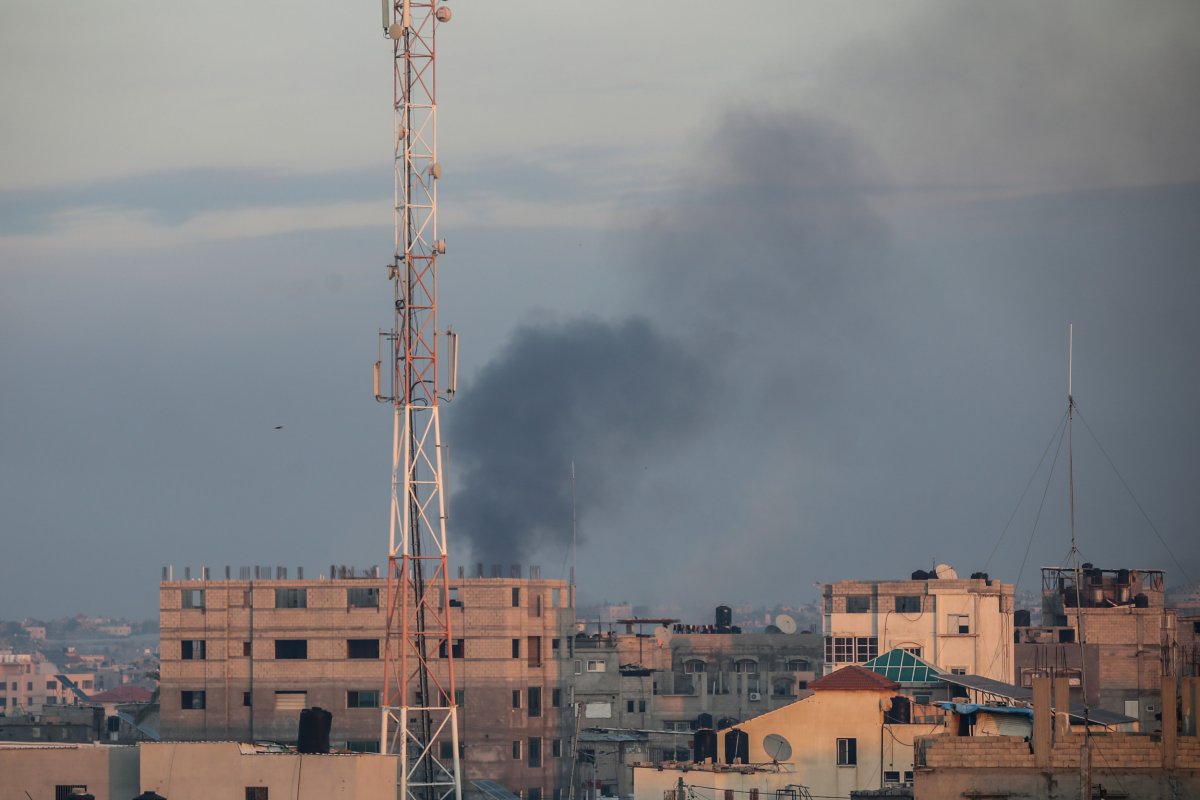Brendan Cole
 The Israeli government headed by Prime Minister Benjamin Netanyahu is spiraling toward a diplomatic row with its closest ally after it rejected criticism by U.S. President Joe Biden about its conduct in the war against Hamas.
The Israeli government headed by Prime Minister Benjamin Netanyahu is spiraling toward a diplomatic row with its closest ally after it rejected criticism by U.S. President Joe Biden about its conduct in the war against Hamas.Much has happened since Biden stood shoulder-to-shoulder with Netanyahu in Israel soon after the October 7 Hamas attacks in which 1,200 people were killed and 240 taken hostage. Biden since has expressed growing discomfort over civilian deaths in Gaza.
Biden warned that Israel was losing international support because of "indiscriminate bombing" by Israel Defense Forces (IDF), which health authorities in Gaza said has resulted in 18,600 deaths as of Thursday, according to the Associated Press.
Biden added that Netanyahu needed to "change" and that his right-wing coalition allies were "making it very difficult for him to move" on the Israeli-Palestinian conflict.
The sentiment was echoed by Israeli Foreign Minister Eli Cohen, who said that Israel will continue the war in Gaza "with or without international support," posing a growing headache for the U.S. president over such a public rebuke.
"Biden has to walk a tightrope in his relations with Netanyahu, and the more his spat spills out into public view, the greater the risks for the White House," said Thomas Gift, the founding director of the Centre on U.S. Politics at University College London.
"Whichever way he pivots, it's hard to think Biden isn't in a lose-lose situation," he told Newsweek. "Even as Biden reiterates his unwavering support for Israel, he's also facing growing pressure at home to speak out against what some perceive as a disproportionate bombing campaign by the IDF in Gaza."
Biden's national security adviser, Jake Sullivan, arrived in Israel on Thursday to meet with Netanyahu and other officials to address aid to Gaza, the next phase of the military campaign and how to reduce harm to civilians.
"I don't think it's a deepening rift," Osamah F. Khalil, a U.S. foreign relations and Middle East expert, told Newsweek. "What we're seeing is par for the course. The U.S. expresses public handwringing and some dismay over the civilian casualties, then a senior administration official will give an anonymous quote critical of Israel."
"Behind the scenes, we're not seeing that. We still have the weapons being shipped and the very public cover at the UN," added Khalil, a history professor at Syracuse University's Maxwell School of Citizenship and Public Affairs. "It's pretty clear that Israel still has U.S. support to continue the campaign—at least another few weeks."
A clip went viral of an interview Israeli Ambassador to the U.K. Tzipi Hotovely gave Britain's Sky News in which she was asked if there was any chance of Israel and Palestine existing side by side.

Smoke rises from Israeli airstrikes on the city of Khan Yunis on December 14, 2023, in Khan Yunis, Gaza. President Joe Biden has criticized as "indiscriminate" Israel's bombing of the territory, straining ties between the U.S. and Israel.
"The answer is absolutely no," she said as she lambasted the 1993 Oslo Peace Accords that envisaged a two-state solution that she said was dead. "I think it's about time for the world to realize that the Oslo paradigm failed on October 7 and we need to build a new one."
Biden has insisted on a two-state solution that has been the primary proposed framework by Washington for resolving the Israeli-Palestinian conflict, but he accepted that after October 7, there was no returning to the "status quo."
"The Biden administration and then the Israeli government are on the same page when it comes to the issue of the need to eliminate Hamas rule," Middle East analyst and former Israeli intelligence official Avi Melamed told Newsweek. "Obviously there are different timelines and different priorities for both players.
"Israel's major issue is that Israeli public opinion will not accept anything that diminishes and ends the storming of Hamas in Gaza Strip. Whatever government there is in Israel, if tomorrow morning there was a stopping of the war, it's very possible that the government would fall because there will be such an outcry."
Netanyahu has said little about how Gaza would be governed if and when he declares victory over Hamas, but he has been a consistent opponent to the independent Palestinian state that Oslo tried and failed to produce.
An op-ed in The Times of Israel by Jeremy Sharon said that Netanyahu "is politically hamstrung, hemmed in by extremist coalition allies...and catastrophic polling numbers" as he faces blame for the security failures that allowed the Hamas attack.
If Netanyahu were to accede to Biden and dump the far-right parties in favor of Yesh Atid and the centrist National Unity, "his tenure as prime minister would come to an abrupt end the day the war against Hamas conclude[s]," the op-ed said.
Meanwhile, a poll by the Palestinian Center for Policy Survey and Research found that almost three in four Palestinians (72 percent) believe the Hamas attacks on October 7 were "correct."
The survey also found that since the start of the war, support for Hamas, which is sworn to Israel's destruction, had risen in Gaza and more than tripled in the West Bank.
No comments:
Post a Comment